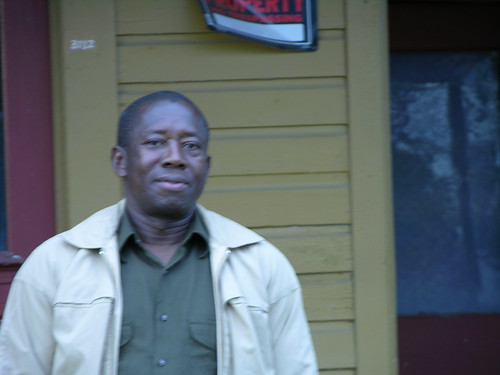
Subscribe to Dollars & Sense magazine.
Subscribe to the D&S blog» 
Recent articles related to the financial crisis.
Wednesday, February 01, 2006
Resources
by Ben Greenberg
There hasn't been a lot of effort on the part of government entities. People got the $2000 [from FEMA]. A good number got the $2300 [from FEMA]. Red Cross came in and gave like $360 per person.
But every faith based organization that you could probably name came to our community and helped us. I can't count the number of college students from different colleges that have been there. A lot of faith based, a lot of organizations, a lot of just individuals, but not a lot of government help.
The only time that we saw government help was when Bill Clinton's visit was announced. FEMA came out with a hundred trucks and removed all the garbage and stuff from the street. That was their aid. That was it. And the people were mad for them removing it. We wanted them to see the true condition of the community. So when the cameras came in, it was clean, as if we were doing alright. But in terms of them rendering aid, no.
We live in a city that doesn't have a whole lot of resources, a state that doesn't have a whole lot of resources, and I think in the first week or so everybody was in the same boat, but I think that as time went on that there was selective distribution of whatever resources was available. I'm not so naive as to think that it was equally divided—no. I think there were selective distribution of whatever was available.
We could see other areas with lights, and we didn't have lights. We were like two or three weeks in, and we could see the highway, since our community is only two blocks off the main [Highway] 49, 49 had lights. The businesses on 49 had lights, and we didn't have lights. And you know you really can't function without electricity.
They just wasn't prepared. They didn't have the resources. to contend with something like this. And FEMA was slow. And it did take a lot of protest in order for the agencies that were here to help to get to us. The Red Cross didn't come to our neighborhood until they was pressured to. I think they sort of thought that it would be easy for us to go where ever they were at. I mean those that had cars were probably less than 50% of those people who had cars pre-Katrina. So you know if there was a thousand cars in the neighborhood, there was less than 500, might have been less than 300. We were living under those types of circumstances.
Please consider donating to Dollars & Sense and/or subscribing to the magazine (both print and e-subscriptions now available!).
2/01/2006 04:03:00 PM 


